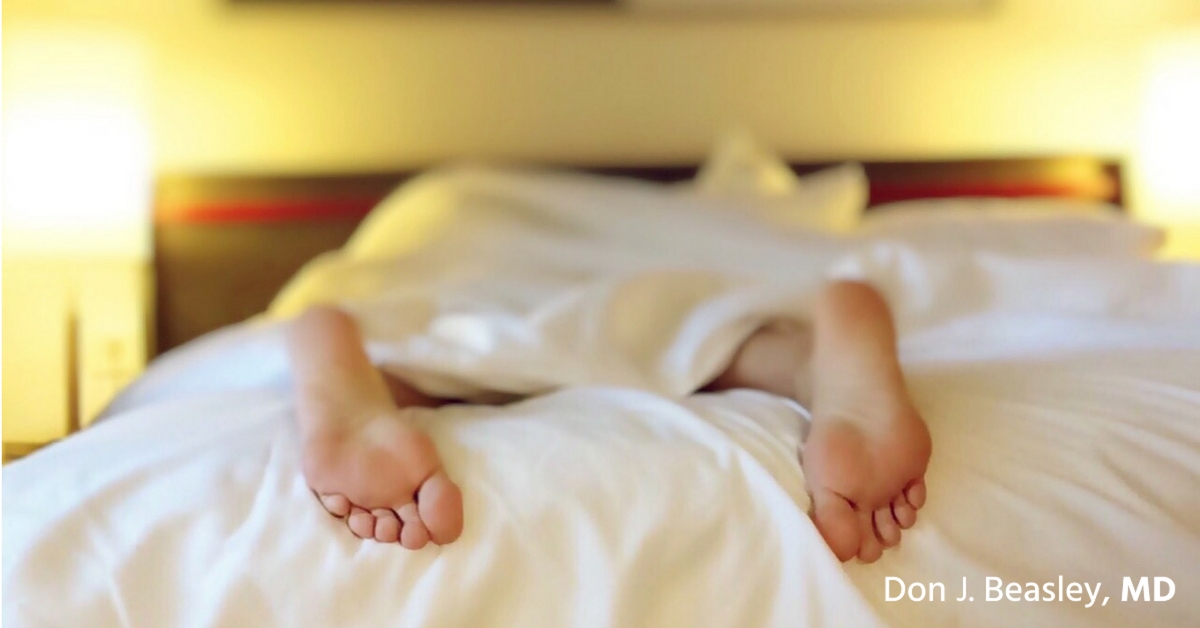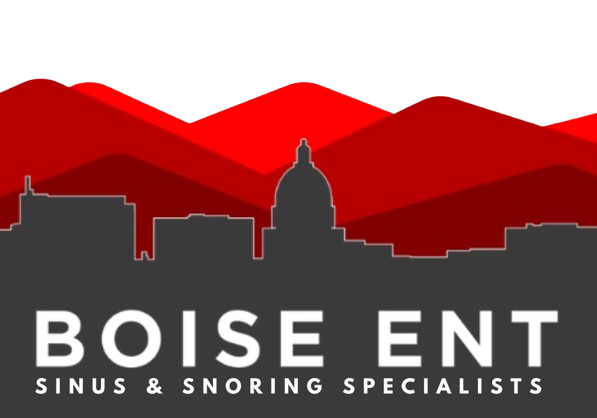We all know the misery of sinus pressure, a stuffy nose, or post-nasal drip. But…

When Your Snoring Should Send You To An ENT
Snoring is a very common occurrence, affecting nearly 90 percent of adults at one point in their lives or another. Caused by vibrations in the tissues of the upper airway, the rattly sound (sometimes loud, sometimes soft) occurs during sleep, when breathing through the mouth, nose, and throat is not consciously moderated.
Common Issues
There are many things that can cause snoring, most of which can be attributed to the nose, mouth, and/or throat region. Common explanations include having a large tongue, uvula, or oversized tonsils, which can create mechanical obstructions. However, the most common cause of snoring is a deviated septum, the area of of cartilage and bone in the nose that separates it into right and left. Being overweight, taking sedative drugs, and habitually drinking excessive amounts of alcohol can also lead to snoring.
Sleep Apnea
Although snoring can often be perceived as a small annoyance to one’s partner, it can become more serious and warrant a trip to the doctor. Obstructive sleep apnea, which can develop as a result of severe snoring, is characterized by irregular breathing in the night. People suffering from sleep apnea stop breathing in their sleep for short periods of time, and this can happen throughout the night. This results in non-effective sleep, leaving the person feeling lethargic and tired throughout the day after not getting as much oxygen as necessary during the night.
Quality of Life
When symptoms begin to affect your quality of life or your relationship with your partner, it may be time to seek medical assistance. If you notice feeling excessively tired during the day or wake up gasping during the night regularly, this is a sign that your snoring is a bit more serious than a mild discomfort. If you do not notice these symptoms in yourself, your partner may observe that you stop breathing in the night.
ENT Specialist
All of these signal that you should be referred to an ear, nose, and throat (ENT) specialist for an examination. The ENT will examine the airway in attempt to find a mechanical obstruction. Several medical interventions are available, some of which are surgical while others are as simple as a prescription medication. In more chronic cases, sleep apnea masks may be suggested to be worn during sleep.
Dr. Don J. Beasley, MD is a board-certified otolaryngologist that has been practicing ear, nose, and throat medicine in the Boise valley for over 20 years. Request an appointment online, or call our office at (208) 229-2368 to schedule a consultation with Dr. Beasley.



